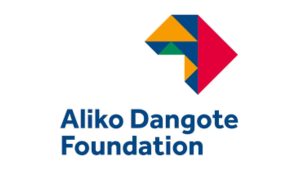
Balancing Enforcement and Dignity in Fight Against Open Defecation
The recent action by the Lagos State Environmental Sanitation Corps (LAGESC) to arrest 20 individuals for open defecation at the Ojodu Berger area highlights the state’s commitment to addressing the public health and environmental challenges associated with this practice. However, while the effort to combat open defecation is commendable, the manner in which these arrests were carried out raises important concerns from both environmental and human rights perspectives.
For a backgrounder, open defecation is a significant environmental issue, contributing to pollution, the spread of diseases, and overall degradation of public spaces. The Lagos State government’s crackdown on this practice aligns with global and local efforts to improve sanitation and public health. The decision to monitor and enforce regulations in high-risk areas like Berger Expressway shows a proactive approach to tackling the problem. By reducing open defecation, the government aims to enhance the cleanliness and livability of the city, which is crucial for both the environment and the well-being of its residents.
Addressing open defecation can be seen as part of the state’s broader corporate social responsibility (CSR) efforts, as it demonstrates a commitment to the health and safety of the community. This aligns with sustainable development goals (SDGs) such as Clean Water and Sanitation (SDG 6) and Sustainable Cities and Communities (SDG 11). By taking decisive action, Lagos State is contributing to the global effort to end open defecation by 2030, a key target under SDG 6.
So? It is not as if this piece tries to exonerate culprits of this anti-environmental practice. The wince only lies in the reality the persons in question are also human so should be treated so.
The method of arresting individuals while they are in a vulnerable state—naked and possibly without access to immediate clothing or dignity—raises serious human rights issues. The right to dignity is fundamental and should be upheld even when enforcing laws. Public humiliation or degrading treatment of individuals, regardless of their actions, can be counterproductive and may violate basic human rights. Such actions could lead to public outcry, undermine trust in law enforcement, and potentially cause psychological harm to the individuals involved.
Therefore, implement a holistic Approach. The government should combine enforcement with public awareness campaigns and education. These campaigns could inform residents about the dangers of open defecation and the availability of public sanitation facilities. Encouraging the use of these facilities could reduce the need for harsh enforcement.
Again, government should invest in infrastructure this time around. To truly combat open defecation, there needs to be a substantial investment in accessible and well-maintained public toilets. In areas prone to open defecation, increasing the number of facilities and ensuring they are safe, clean, and free to use could significantly reduce the problem.
Similarly, there must be respect human rights no matter the circumstance. While enforcement is necessary, it should be conducted in a manner that respects the dignity of all individuals. Instead of arresting people in a degrading manner, LAGESC could adopt a more humane approach, such as issuing fines or warnings and providing immediate access to clothing or shelter.
It is against this backdrop that CSR REPORTERS calls a review of these policies. Really, it has become essential for the government to regularly review its enforcement policies to ensure they are effective and humane. This review should involve consultations with human rights organizations, legal experts, and the affected communities to ensure that the policies are fair and just. While the Lagos State government’s efforts to address open defecation are necessary, they must be carried out within the bounds of human rights and dignity.









